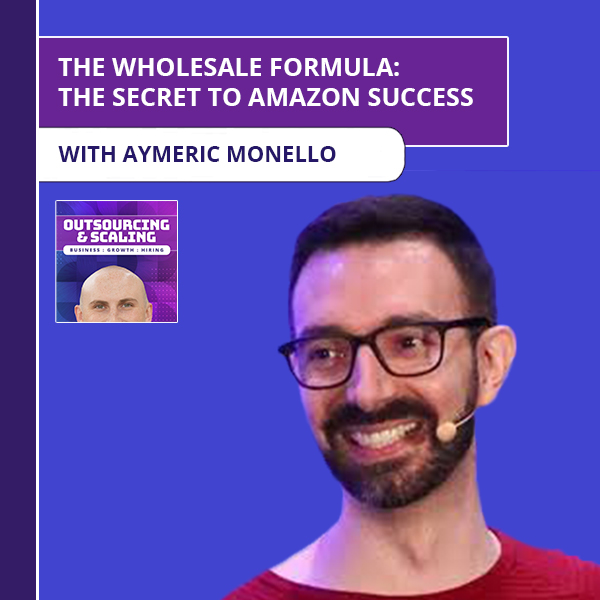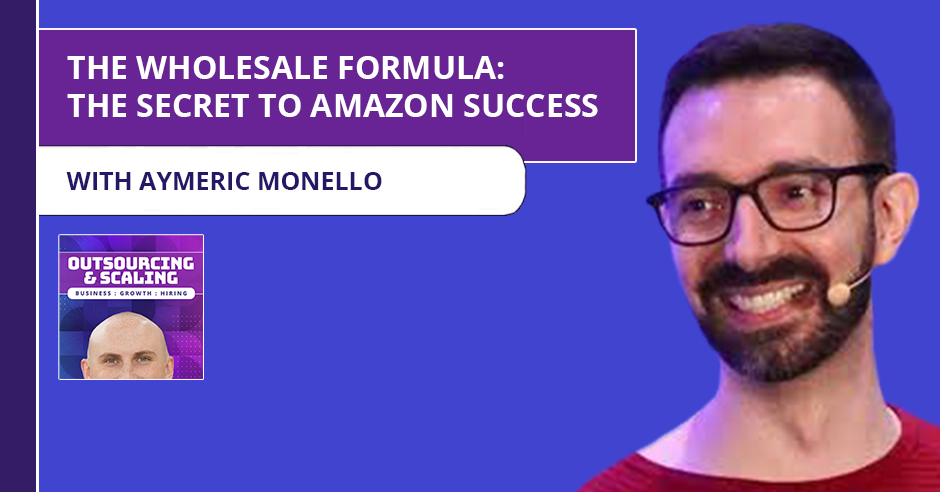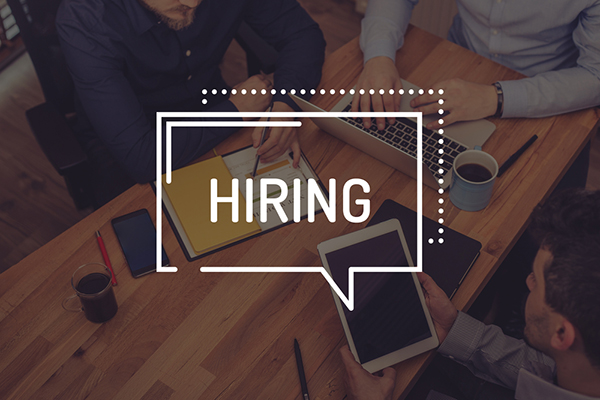


Interested in discovering the secrets to Amazon success? On today’s show, Nathan Hirsch interviews Aymeric Monello about his success as an Amazon seller and how The Wholesale Formula has helped him in his ventures. Aymeric shares what led him to selling retail on Amazon, how he created his business around it, and the ups and downs that he went through. He takes us behind the scenes on the process of selling his own business and transitioning it for the new owner. Know more about being an Amazon seller and growing your business using the right formula in this episode.
—
Listen to the podcast here:
[smart_track_player url=”https://www.podetize.com/statsapi/www.podetize.com/wp-content/uploads/fileuploads/11-5b145ef137b51b3d1af0633e9305c43d/03/2020/4a706552ab73444a8be8be6f0b6aa296.mp3″ title=”The Wholesale Formula: The Secret To Amazon Success With Aymeric Monello” artist=”Nathan Hirsch” image=”https://freeup.net/wp-content/uploads/2019/04/OAS.png” ]
Download the audio file here.
The Wholesale Formula: The Secret To Amazon Success With Aymeric Monello
My guest is Aymeric Monello. Aymeric, how are you doing?
I’m good. How are you?
I’m doing great. I am pumped to have you on here. You and I first talked back when I first started FreeeUp. It’s cool seeing your adventure. I know you sold your Amazon business and you now work with The Wholesale Formula. It’s exciting seeing you along for the ride. Aymeric grew up in France and moved to the US in 2011. He started his first business in 2015, which is right around the time FreeUp started. It was a hybrid private label and wholesale Amazon business model that he sold in Q2 of 2019. In quarter three of 2019, he invested in another Amazon business and got hired as a CFO of a company that now owns and operates The Wholesale Formula. Those of you might have seen my other episode with Dan. The Wholesale Formula teaches people how to build a business selling in Amazon by using reverse sourcing strategies. We’re going to talk all about that. First, let’s take a gigantic step back. What were you like as a kid growing up? Were you a straight-A student? Are you a rebel? Did you always know you wanted to be an entrepreneur?
I didn’t know that for sure. I was good when I was little, then when I got to middle school and high school, it wasn’t that great. I got passing grades and it was fine. I went into accounting in high school. Right after that, I figured out that I didn’t like it, which is funny because I’m the CFO now. I studied web design in France. I got my Bachelor’s degree there and worked for an eCommerce company in France for about five years before moving here.
What’s eCommerce like in France compared to the US? Are there any differences in how people run eCommerce businesses?
It’s pretty similar. There are different laws so it’s going to be different. For example, at the time when I was there, I don’t know if the law changed since, but you couldn’t sell as a loss. That was to prevent bullying and monopoly from big companies. In the US, they don’t care. You can sell as a loss whatever you want. You do whatever you want with the product. That brings different strategies. The eCommerce website that I was working with is called VentePrivee.com. We had triple-digit growth for 3 or 4 years, which is ridiculous. When I started there, we were 100 people. When I left, there were 2,000 people. It’s such a ridiculous growth. It was cool to be part of this. They introduced me to entrepreneurship. I had no idea what it was. My parents worked as bank contractors their whole lives. It’s all go to school, get a job and shut up. It’s pretty much what it is. I never grew up around entrepreneurship.
How did you start your Amazon business? Did you take a course? Did you figure it out for yourself?
At first, my girlfriend at the time saw Jessica Larrew and read an article from her. I had no idea. I didn’t even know you could sell on Amazon. For me, Amazon was a retail site that you buy on. I had no clue. She showed me that article and it surprised me so much. I was like, “This is super interesting. I need to dig into this.” Since then, I didn’t stop. I did retail arbitrage for a couple of months and online arbitrage for a few months. I found The Wholesale Formula. I missed the first enrollment. I was able to enroll in February of 2015 and everything took off from there. I started by myself a little bit and followed a few courses, articles and stuff. I then took a full-on course to follow strategy.
What were some of the ups and downs that you had with your Amazon business? Selling the business is a big up but I’m sure that it wasn’t like that the entire way.
There were a lot of crazy things that happened. I could see it at some point by a huge company, Whirlpool, because I was selling water filters. The company it was buying water filter from who was in Texas. We’re making their water filters in China and they were infringing on Whirlpool patent, which I had no idea. Who checks the patent of their supplier? It’s stupid at this point. That happened and I got out of it with no damage so that was fine. It’s stressful when you come home and you get a loss like this in the mail. It’s not the greatest in your first year of business.
I hope that never happens to me. That sounds awful.
I was buying makeup stuff and I’m buying from a distributor. I asked, “Do you know if they’re going to sell directly to Amazon?” The guy’s like, “There’s no way.” I buy a bunch at the time. It was $8,000 or something like that. The truck is on its way to Amazon, then Amazon jumps on the listing and sells below my cost. It took me a year to sell this in the UK. I opened an account in the UK and sold it there. It was a mess.
What was the process like of selling the business? Can you take us behind the scenes a little bit?
It was cool because I went through Quiet Light Brokerage. It was referred to me by a friend who sold his business with them as well. They were nice and great due diligence. They guided me and helped me value the business the best way possible. They found a buyer for me and the whole process was good.

Let’s talk about hiring. Before we started, you said that one of the reasons you’re able to sell the business is you had a team of VAs in the Philippines. What have you learned about hiring people in the Philippines? How are you able to structure that?
The thing is I built it by myself when I started. I took it up pretty high, around $700,000 a year or something by myself, but I had no time at all. I was working like a dog all the time and I was capped. I didn’t realize this. My friends were telling me, “You can’t do this.” The Wholesale Formula, Dan was telling me, “You can’t do this. You have to hire.” I was looking to Trent as well and he told me, “You have to hire. You can’t do it yourself if you want to grow. Otherwise, you’re going to get a cap.” I was like, “I don’t want to spend money.” When you start, you don’t want to spend money at all. I had that mindset. I was like, “I can do it myself. I don’t need to spend $300 or something. It’s so much money.” You then realize that you lose so much money by not hiring. I outsourced my whole business in three months. I found a product manager. She’s wonderful. She’s still with me working on plenty of projects. From there, we put processes in place. We made processes for everything in the business. We hired other VAs, teach them on the processes and that was it. I was working two hours a week.
The people that you had working for the Amazon business didn’t go with the sale?
They didn’t because we sold the business but the person who bought is not an operator. I told him, “What do you think if we operate the business for you for a percentage of gross profit?” It gives me a residual income from the sale so I get a big check and I get residual income every year and every month. He doesn’t have to take care of it. We retained the workforce, but we charge the labor. He’s hiring them but we still keep them on our payroll.
What about higher-level people like freelancers? I know you’re the CFO of a larger company. What can you tell us about how they structure that and how they balance the non-US with the US?
It’s the same thing. It’s good to have non-US and it depends on what task you want. The first thing you think about when you think of non-US are low-level tasks, but it’s not the case. You can get cheap labor compared to the US to do more recurring tasks. There are skilled people overseas as well to do a bunch of stuff. It’s not only the Philippines. You can find them everywhere. I’m thinking of Eastern Europe for developers, for example. There is a lot of good people that are not in the US. It’s going to be cheaper and it’s going to be a good rate for them for their cost of living.
Any other hiring tips or maybe hiring mistakes that you made over the years?
Hiring mistakes, for sure. Who hasn’t? We spent time with the new person. At some point, I tried to hire an MBA like, “Here’s documentation and go do your stuff.” It doesn’t work that way. It’s cool to have documentation and have processes for them to follow. It’s also good to have a human element that you can follow up and make sure that they understand and create a good culture in your company.
What tips do you have for building a good culture?
It depends on who you talk to and where you are. It’s a broad question. I don’t even have that one figured out yet. I don’t know if you do. You need to understand your values and what you want to accomplish with the company and try to find people who believe in what you’re trying to do. If they don’t fit, you shouldn’t keep them for skills because a bad person is going to tear down your team if they’re not on board with whatever you’re trying to accomplish.
No matter how much money they make you or how talented they are, if they’re not a fit, eventually it’s going to cost you one day. Talking about being a CFO. A lot of people hear Chief Financial Officer and they might not know what that means. Do you manage the money? Are you doing more bookkeeping and accounting? What does CFO mean to you?
It’s more financial planning and being able to give the shareholders the numbers that they need to manage their business properly. We outsource bookkeeping. We have CPA and bookkeepers. I’m the buffer between the company and the bookkeeper because they don’t know what’s going on. They don’t reconcile stuff. They don’t know where it goes and all that stuff. I help with that. The goal is to put the books in a way that I can show P&L to the shareholders and be like, “Here’s where we’re spending a lot of money. Does that make us a lot of money? Here is where we don’t spend money, should we spend money here?” It’s those things. “What is the best revenue that we have? Should we double down on this or do we want to diversify in other stuff because that one is too risky?” There’s a bunch of questions like these and if you don’t have books in place, then you have no data to make a decision on.
Can you give us an example of a decision that was based on data that you were able to put together? It doesn’t have to be with The Wholesale Formula. I want to give an example for the readers on how important data is and what business decisions you can make off of data.
For example, advertising is one that’s easy because you look at how much you spend on advertising and how much you make. For Amazon, it’s easy because we have tools like ticket matrix or other tools that give you that data of how much you spend and make. When you do Facebook ads or stuff like that, you might not have that data all the time because you’re going to cover with the cost of goods and all that stuff. Having books in place makes a little bit more sense and you’re like, “Which one do we pick? Should we double down on Google ads or should we do more Facebook ads. Should we go on Instagram? Should we go on this or that?” We then put the data everywhere here.

What is your day-to-day look like as a CFO?
I’m deep in books and trying to make books that make sense and understanding the business because it’s a new business for me. Even though I know it from the outside, I didn’t know it from the inside. I need to learn how it functions and what it does. I’m putting the books together. I’m managing five different companies so it’s five different sets of books.
How do you balance your time?
Now it’s go-go so I don’t balance much. Before I started, I was more of 9:00 to 3:00 every day and going to the gym after 3:00 and winding down. Now I don’t have much time to go to the gym. It’s like urgency. I’m doing whatever needs to be done and put it in place. Once it’s in place, I’m going to have more time to figure out how to schedule it. For now, it’s just go.
What advice do you have for people that want to get into wholesale or improve their wholesale business?
Processes are big components of a successful business. Once you have the business running and you do it yourself, try to make processes of everything you do. I know you explained that as well a lot. Your readers are going to know that already probably, but I’m going to say it again. It’s easy for online business. The way I do it is I record my screen, send it to the VA and tell the VA, “Go ahead and make a process out of that screen share.” They make the process. We use Process Street, but there are other tools that you can use as well. She sent me the process in Process Street. I read it to see if it makes sense. If there are no mistakes and it’s good, I’m like, “Now it’s yours.” I check it every time for a month, the process needs to be done. After that, you can check it a little bit less and less, then that person is going to take it off. I know you have a 90-day rule.
I don’t want to do anything for longer than 90 days unless it’s a core thing that I should be doing like podcasts. A lot of people miss that. They either hand the person over the stuff and let them go without checking their work and giving feedback. They don’t realize how important that is to get that person on the right track. Even if you hire an A-plus VA, they’re still going to make some mistakes the first time they go over a process, even the second and third time. You’re going to have to do that or they stay out in the process too much and they can’t hand it over. They’re constantly going after it. They’re looking over the shoulders of people they don’t have to be looking over the shoulders of. Finding that good balance of you pass it off, have them do it and check. Give them a little bit more leeway with the ultimate goal of within that 90 days, that’s off your plate. Would you agree with that?
That’s exactly what it is.
What are your other tips about Amazon? Where do you see Amazon going? I got in in 2008 before people even knew about Amazon. It became the Amazon craze where everyone wants to do it. Now we’re seeing a lot more competition in the market. A lot of people are saying it’s getting saturated. You’re seeing a lot more focus on building a brand. Where do you see Amazon going?
It’s growing so fast. I understand there is competition and Amazon is catching up as well. It maybe makes it more difficult for people to do whatever they want because they learn too. Amazon learns as it goes that there are black hat tactics. They try to prevent that which is good for everybody. Amazon is a great opportunity still and it’s going to be for many years because it’s growing crazy every year. I saw a curve, or was it graph maybe, and it was this ridiculous exponential looking curve. A few advice would be, follow the rules and don’t try to take shortcuts because it’s going to bite you in the ass at the end. You might get your account or your stuff suspended or reviews are going to disappear or whatever. Don’t do that.
You can diversify even in Amazon. Even though it’s Amazon itself, there are many different models that you can do like retail arbitrage or online arbitrage. I don’t believe in the future of arbitrage. That’s a personal belief. Amazon and the brands are not going to like that. They don’t like it already. Wholesale is great. You can do brand management and private label. All these models are completely good. I did a hybrid private label wholesale a little bit, which is fine. Listen to people who’ve been there. I took a course and learned so much in a week’s time. It would have taken me probably five years to learn as much with making the mistakes myself and all that. The investment is worth it when you take courses of people that you can trust and you know had been there.
Where can people find out more about you? What are you most excited about for the rest of the year?
They can find me on social media. It’s at @AymericMonello for Instagram if they want to see me there. They can look at The Wholesale Formula. I’m working with The Wholesale Formula now and I’m pretty excited about seeing what’s coming in the future. We’ve got a bunch of projects and a bunch of good stuff for people to learn. I’m pretty excited about that.
I appreciate you coming on and I’m sure we’ll be in touch.
Thank you for having me.
Important Links:
- Aymeric Monello
- FreeeUp
- The Wholesale Formula
- Dan – Previous Episode
- https://www.Veepee.com/
- Jessica Larrew
- Quiet Light Brokerage
- Trent
- Process Street
- @AymericMonello – Instagram
About Aymeric Monello
 Aymeric Monello grew up in France and moved to the U.S. in 2011. I started my first business in 2015 which was a hybrid private label/Wholesale Amazon business that I sold Q2 of 2019. In Q3 of 2019, I invested in another Amazon business and got hired as the CFO of the company that owns and operates The Wholesale Formula. The Wholesale Formula teaches people how to build a business selling on Amazon by using the reverse sourcing strategy.
Aymeric Monello grew up in France and moved to the U.S. in 2011. I started my first business in 2015 which was a hybrid private label/Wholesale Amazon business that I sold Q2 of 2019. In Q3 of 2019, I invested in another Amazon business and got hired as the CFO of the company that owns and operates The Wholesale Formula. The Wholesale Formula teaches people how to build a business selling on Amazon by using the reverse sourcing strategy.
